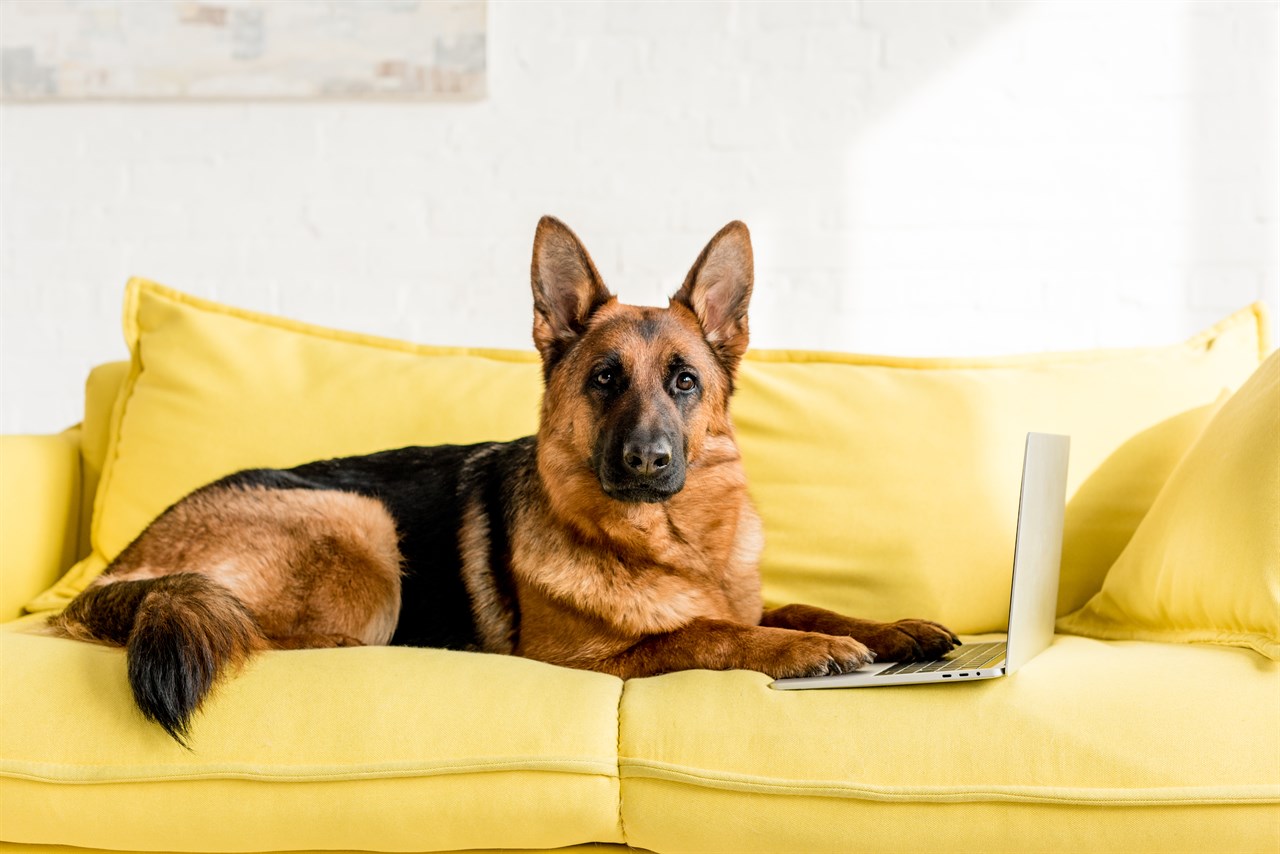Toilet Training the German Shepherd Dog

Toilet training, also known as housebreaking, is an essential part of raising a well-behaved and obedient German Shepherd Dog (GSD). These intelligent and eager-to-please dogs are generally quick learners, which can make the process more manageable. Here's a guide on how to effectively toilet train your German Shepherd.
Start Early
Begin the training process as soon as you bring your German Shepherd puppy home, ideally around 8 to 12 weeks of age. Puppies have smaller bladders and will need more frequent bathroom breaks.
Establish a Routine
Consistency is key. Create a regular schedule for feeding, playtime, and bathroom breaks. Take your puppy outside first thing in the morning, after eating, after play sessions, and before bedtime. This helps them learn when and where they should eliminate.
Choose a Designated Bathroom Spot
Select a specific area in your yard for your puppy to use as a bathroom. The scent of previous eliminations will help reinforce the idea that this is the appropriate place.
Use Positive Reinforcement
When your puppy eliminates in the designated spot, offer immediate praise, such as verbal encouragement and treats. Positive reinforcement helps them associate the act of eliminating outside with rewards.
Watch for Signs
Be attentive to your puppy's behaviour. Common signs that they may need to eliminate include sniffing the ground, circling, or whining. When you notice these signs, take them outside promptly.
Supervise and Confine
Keep a close eye on your puppy when they are indoors. Use a crate or playpen when you cannot supervise them to prevent accidents. Dogs typically avoid soiling their living spaces, making crates an effective training tool.
Be Patient
Accidents are part of the learning process. If your puppy has an accident indoors, do not scold or punish them; they won't understand why they are being reprimanded. Instead, clean the mess thoroughly to remove any lingering odours.
Transition to Outdoor Elimination
As your puppy grows and gains better control of their bladder, you can gradually extend the time between bathroom breaks. Continue to reinforce outdoor elimination with positive reinforcement.
Consistency Is Key
Maintain a consistent routine throughout the training process. The more consistent you are, the quicker your German Shepherd will learn where and when to go.
Patience and Persistence
Every dog is different, and some may take longer to housebreak than others. Stay patient, persistent, and gentle throughout the process. Avoid using punishment or harsh methods, as they can lead to fear and anxiety.
Consult a Professional Trainer
If you encounter challenges or your puppy doesn't seem to be making progress, consider seeking guidance from a professional dog trainer or behaviourist who specialises in positive reinforcement training methods.
Remember that toilet training a German Shepherd takes time and effort. Stay committed to the process, and with patience and consistent training, your GSD will become a well-behaved and house-trained member of your family.
German Shepherd Dog puppies for sale
- Find German Shepherd Dog puppies for sale in ACT
- Find German Shepherd Dog puppies for sale in NSW
- Find German Shepherd Dog puppies for sale in NT
- Find German Shepherd Dog puppies for sale in QLD
- Find German Shepherd Dog puppies for sale in SA
- Find German Shepherd Dog puppies for sale in TAS
- Find German Shepherd Dog puppies for sale in VIC
- Find German Shepherd Dog puppies for sale in WA